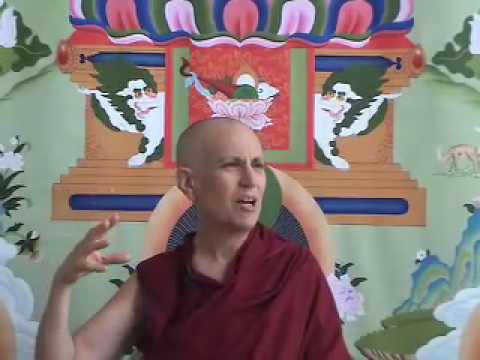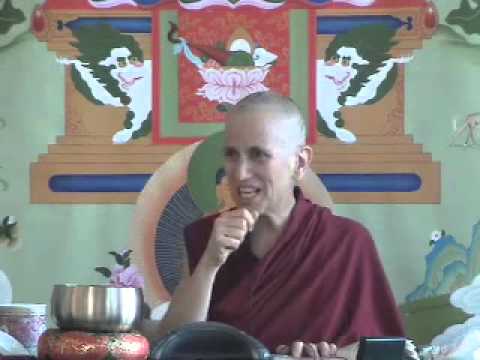Death time and possessions
Stages of the Path #26: Death and impermanence, Part 4
Part of a series of Bodhisattva's Breakfast Corner talks on the Stages of the Path (or lamrim) as described in the Guru Puja text by Panchen Lama I Lobsang Chokyi Gyaltsen.
- How hard we work in life to accumulate possessions
- Money and possessions remain behind when we die
- Considering the karma we’ve created in accumulating things
We’ve been talking about the death meditation, and that death is definite, the time of death is indefinite. The third major point is that at the time of death our body, our possessions, and our friends are of no benefit, no use, and we can’t take them with us.
If we look at it, if we start with our possessions. We work very hard in our lives to collect possessions and money. Sometime money is a sign of social status, or a sign of love, or a sign of acceptance, a sign of power. Money symbolizes many things, and people work very hard to get it, and they commit a lot of negative karma in order to get money. And yet at the time of death the money stays here and one goes on alone without any of the money, any of the possessions, any of the family heirlooms, any of the souvenirs, any of the things that you treasure. They all stay here, and your relatives go through them and divide them up, and take each other to court about who gets what.
Then the question is, is it worth creating so much negative karma to get these things that we can’t take with us when we die?
That doesn’t mean that we don’t need possessions while we’re alive. We do need. But to have an attitude towards them without so much clinging attachment, and without thinking that they are the sign of success for our lives. But just seeing possessions for what they are, doing what we need to do to earn a living, but not creating negative karma in the process, and not being so attached to these things so that at the time of death we freak out because we’re separating from them.
The other two I’ll talk about the next couple of days, because there’s more to say on each of these three.
Venerable Thubten Chodron
Venerable Chodron emphasizes the practical application of Buddha’s teachings in our daily lives and is especially skilled at explaining them in ways easily understood and practiced by Westerners. She is well known for her warm, humorous, and lucid teachings. She was ordained as a Buddhist nun in 1977 by Kyabje Ling Rinpoche in Dharamsala, India, and in 1986 she received bhikshuni (full) ordination in Taiwan. Read her full bio.


